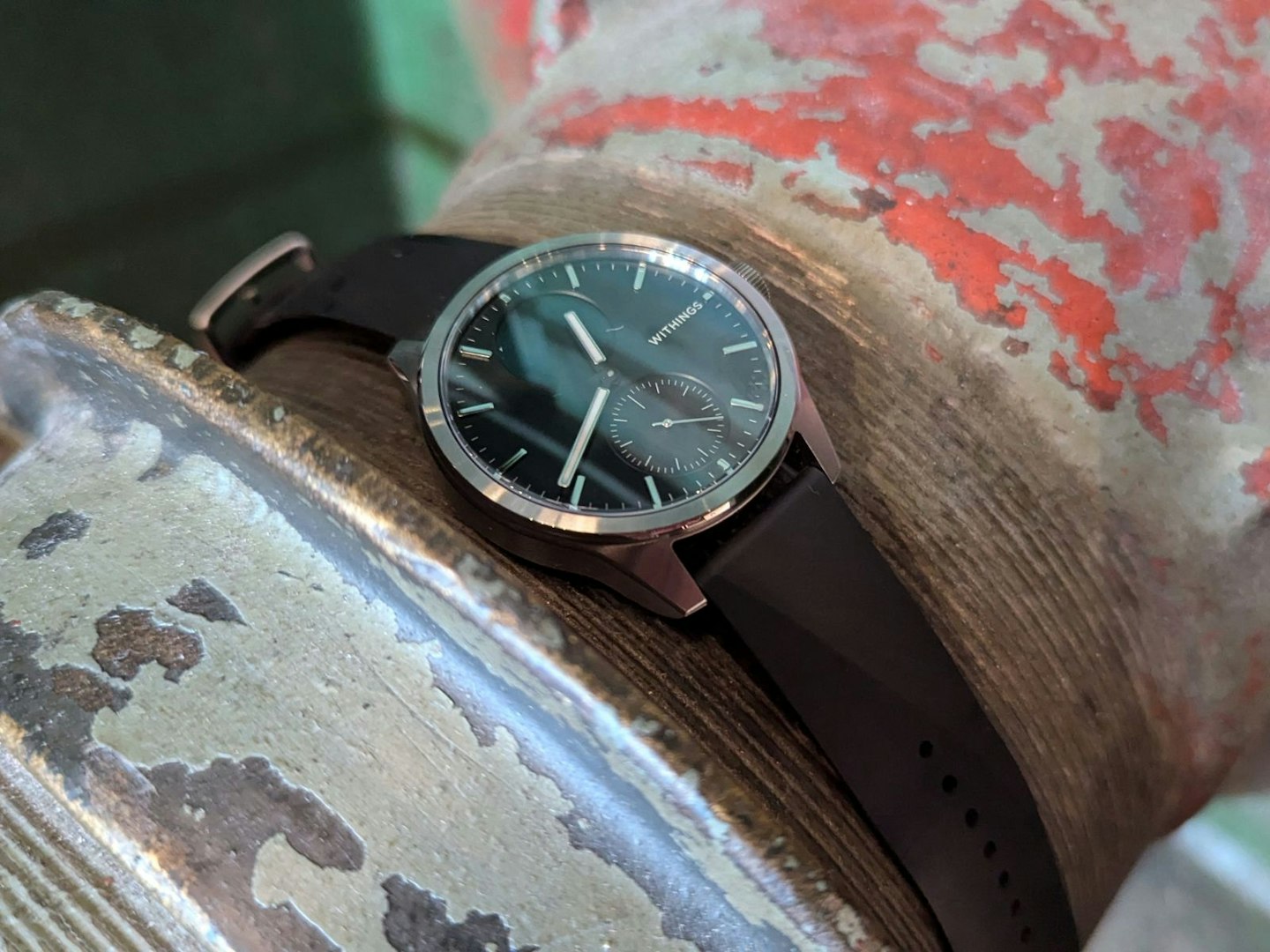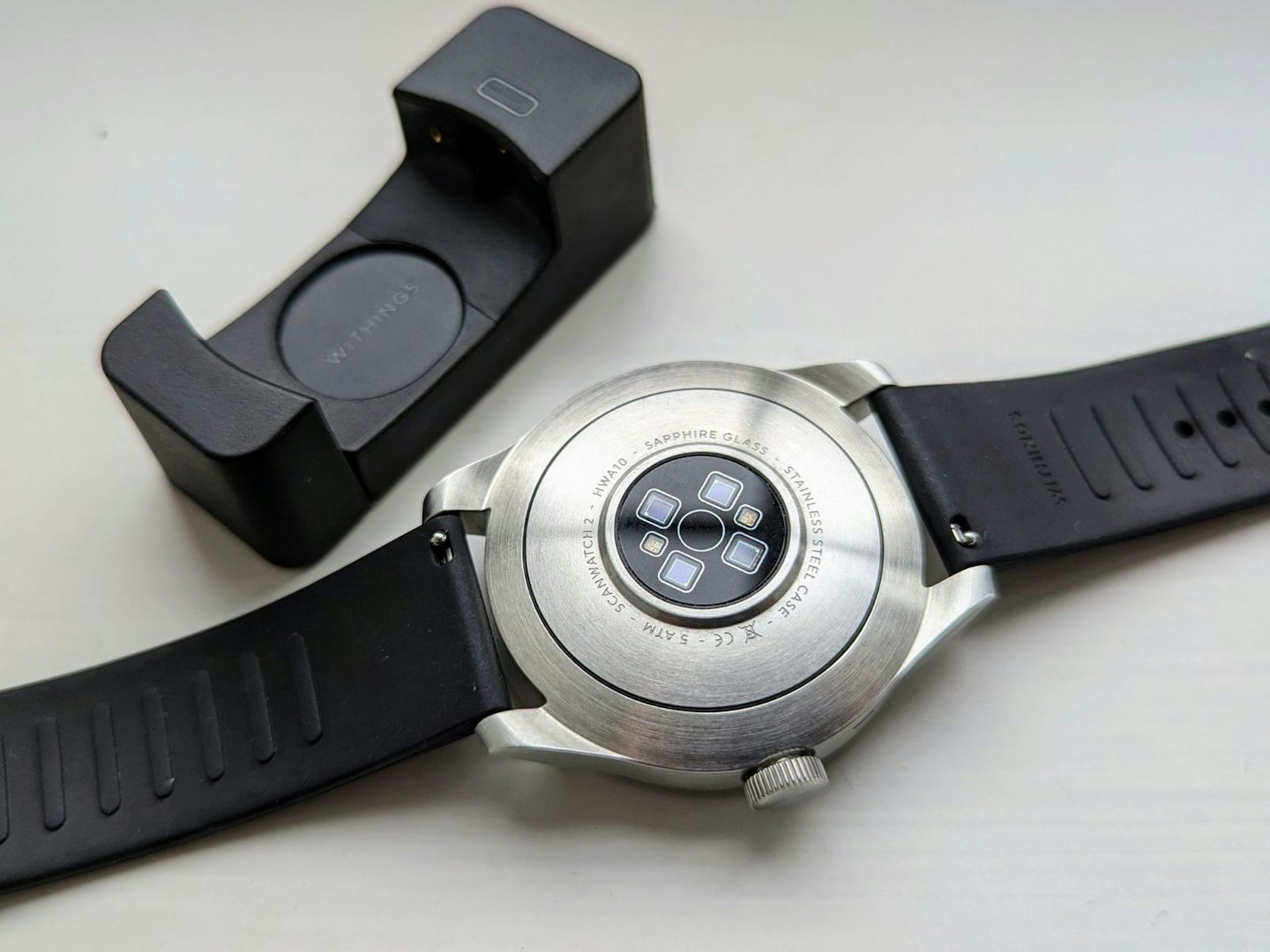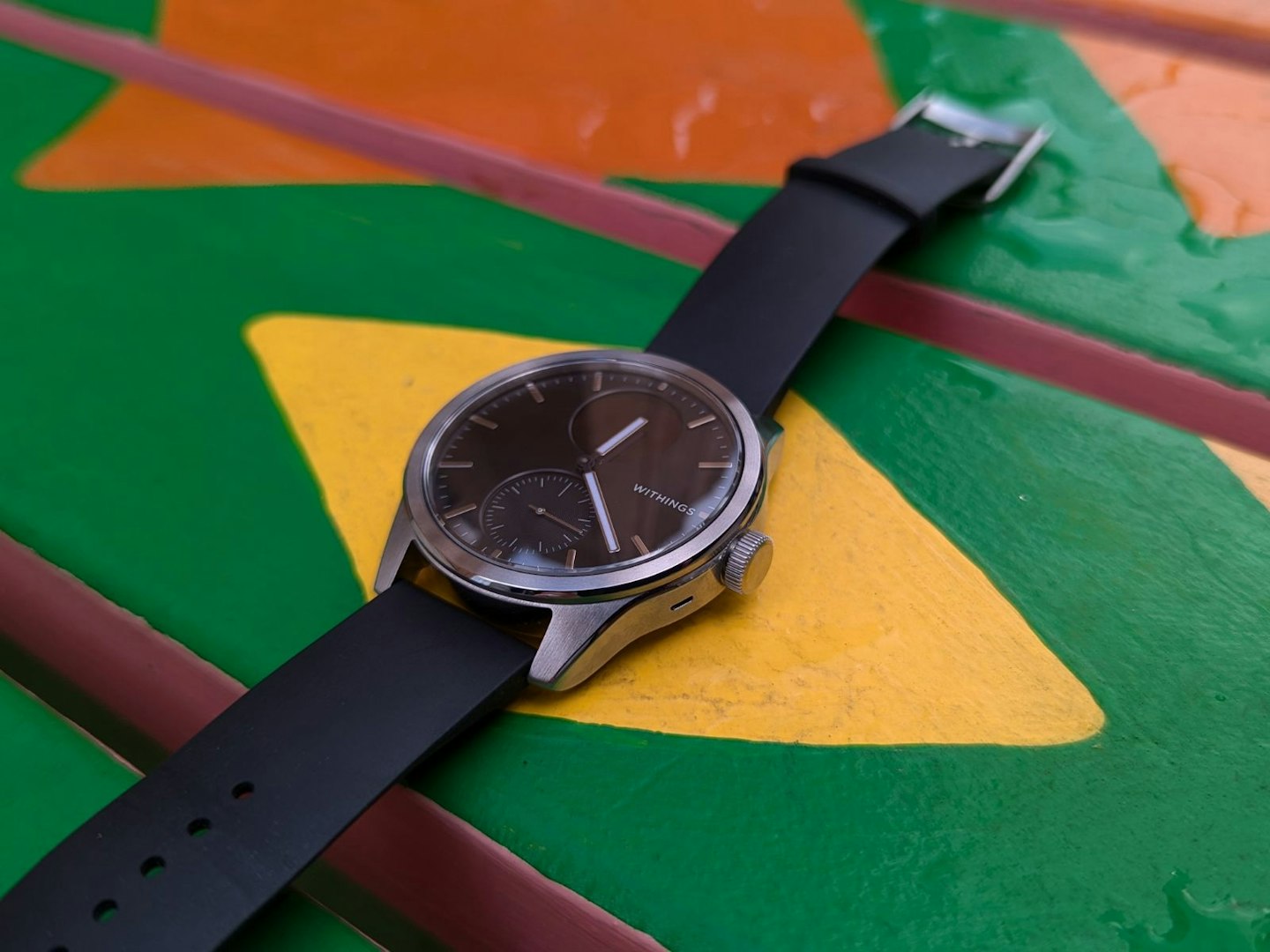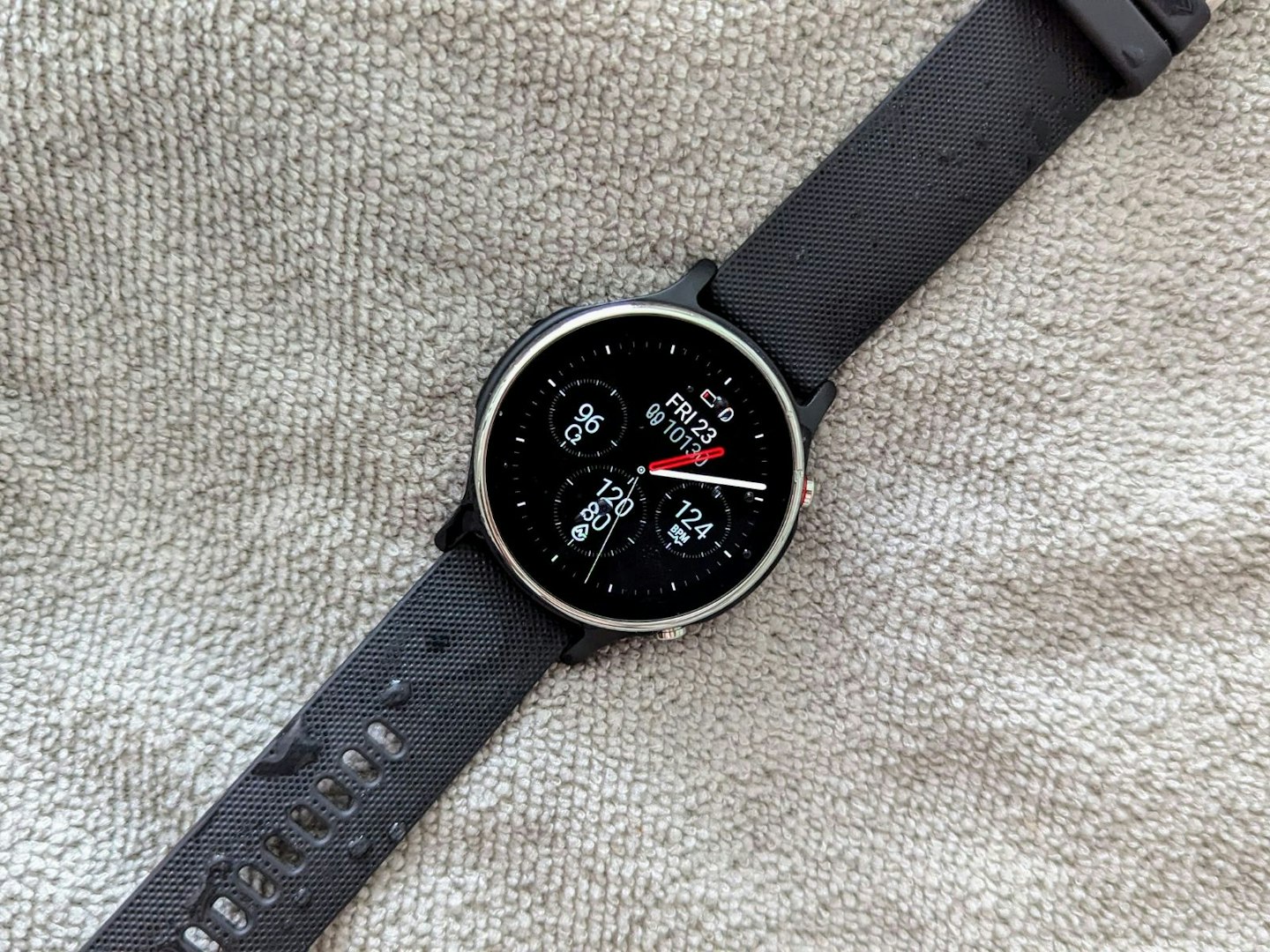The best smartwatches for health tracking are filled with tools that allow you to build a comprehensive picture of your overall health and fitness. GPS, heart rate and sleep monitoring, step counts, activity tracking and much more, can all help us have a clearer idea of how our health looks.
But it isn’t just about encouraging people to be more active. Some of these devices can provide an ECG (electrocardiogram), alert you when you might be about to get ill, or even track your blood pressure. Many can also give you an idea of how stressed you are, to help you identify triggers that could potentially be harming your health and wellbeing.
The best smartwatches for health tracking at a glance:
There are plenty of good reasons to use a smartwatch for tracking your health. Maybe you’re monitoring an ongoing health condition, and want a bit of extra support. Perhaps you’re interested in seeing how your lifestyle is impacting your health. Or you could be looking for a tool to help you reach peak physical condition and maintain your good health for as long as possible.
Whatever your motivation, we’ve put together a list of the best smartwatches to help you with whatever health goal you are pursuing. Some are dedicated smartwatches, while some are more like the best fitness trackers, with a few added smartwatch features. No matter your budget, your preferred brand, or the purpose for tracking your health, we’ll have something suitable for you. So, save yourself the endless internet doom-scrolling and find the best the internet has to offer in seconds. Below, see the best smartwatches for health tracking.
The best smartwatches for health tracking of 2024
All prices are correct at the time of writing. Prices, stock and deals are subject to change without notice.
Best overall
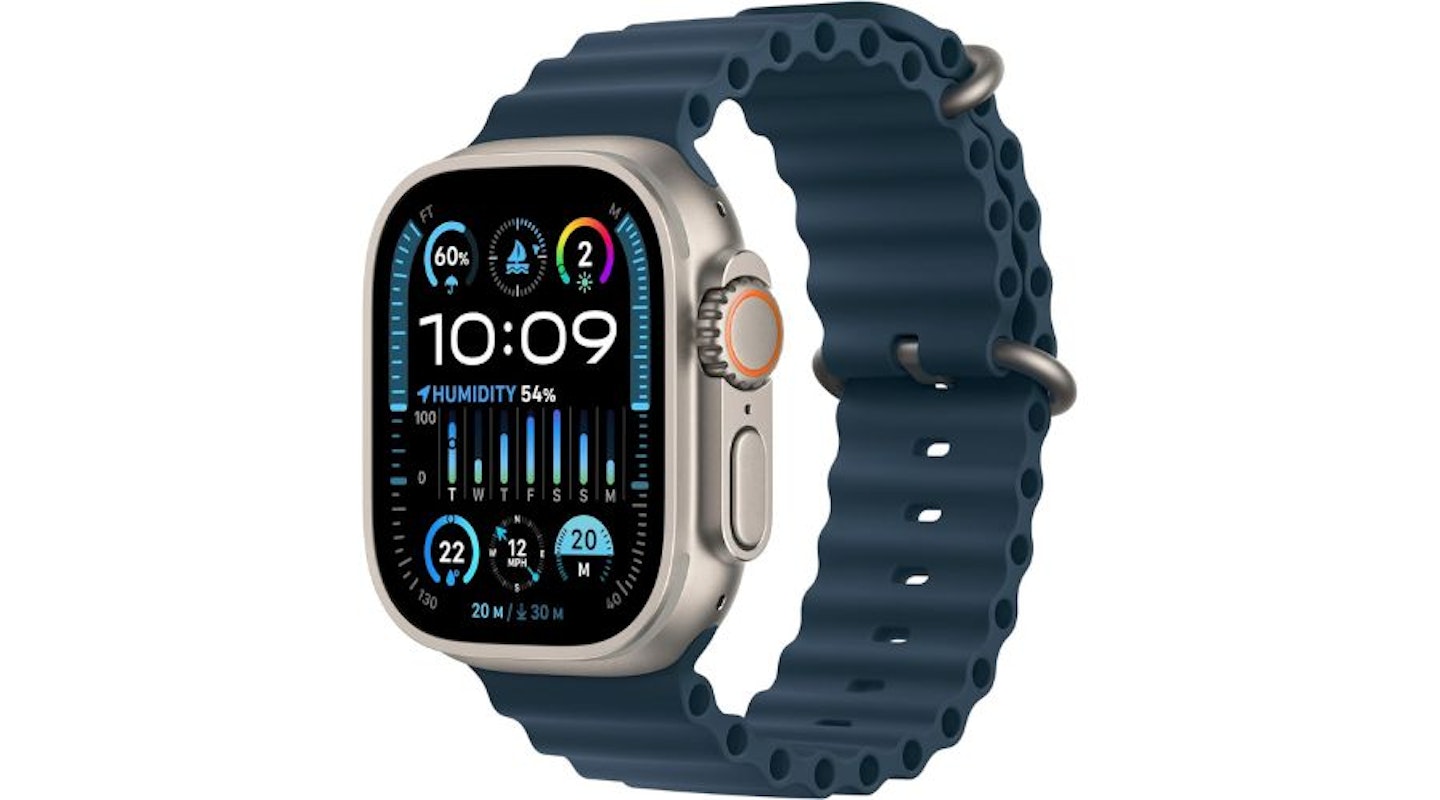 Apple
AppleWhen it comes to doing smartwatches, few, if any, do it as well as Apple. The Apple Watch Ultra 2 is the current pinnacle of Apple’s smartwatch lineup, ahead of the Apple Watch Series 9 and the Apple Watch SE. It offers plenty of health tracking features alongside one of the most seamless smartwatch experiences around.
It’s built to withstand tough conditions, with a rugged titanium case suitable for outdoor adventures, and even scuba diving and water sports. It has an exceptionally bright Retina display, the biggest battery of any Apple watch (typically a major weakness) and plenty of customisation options. Crucially, it’s a fully-fledged smartwatch, so making calls, sending texts, and using apps is all possible as well.
In health terms, the Apple Watch Ultra 2 offers ECG readings to detect atrial fibrillation, heart health notifications, sleep tracking, blood oxygen monitoring, and tracks your temperature overnight. It can even notify you if your cardio fitness levels seem on the low side. There are also plenty of sports and activity tracking options, including advanced tracking for running and cycling, thanks to the accurate GPS that’s built-in.
It doesn’t come cheap, with an RRP starting from £799. Battery life, typically around 36 hours, is still on the low side. But it’s a supremely polished smartwatch with excellent health-tracking credentials.
Pros
- Incredibly bright display
- Some options are carbon neutral
- Double tap gesture control
Cons
- Battery life is still quite limited
- Size won't be to everyone's taste
| Display: | 1.91-inch OLED Retina display, 502 x 410 pixels |
| Battery Life: | Up to 36 hours normal use, 72 hours in low power mode |
| GPS: | GPS, GLONASS, Galileo, QZSS and BeiDou |
| Water Resistance: | 100 metres under ISO standard 22810:2010 |
| Compatibility: | iOS only |
| Dimensions: | 49 x 41 x 14 mm |
| Weight: | 61 grams |
Best budget health tracking smartwatch
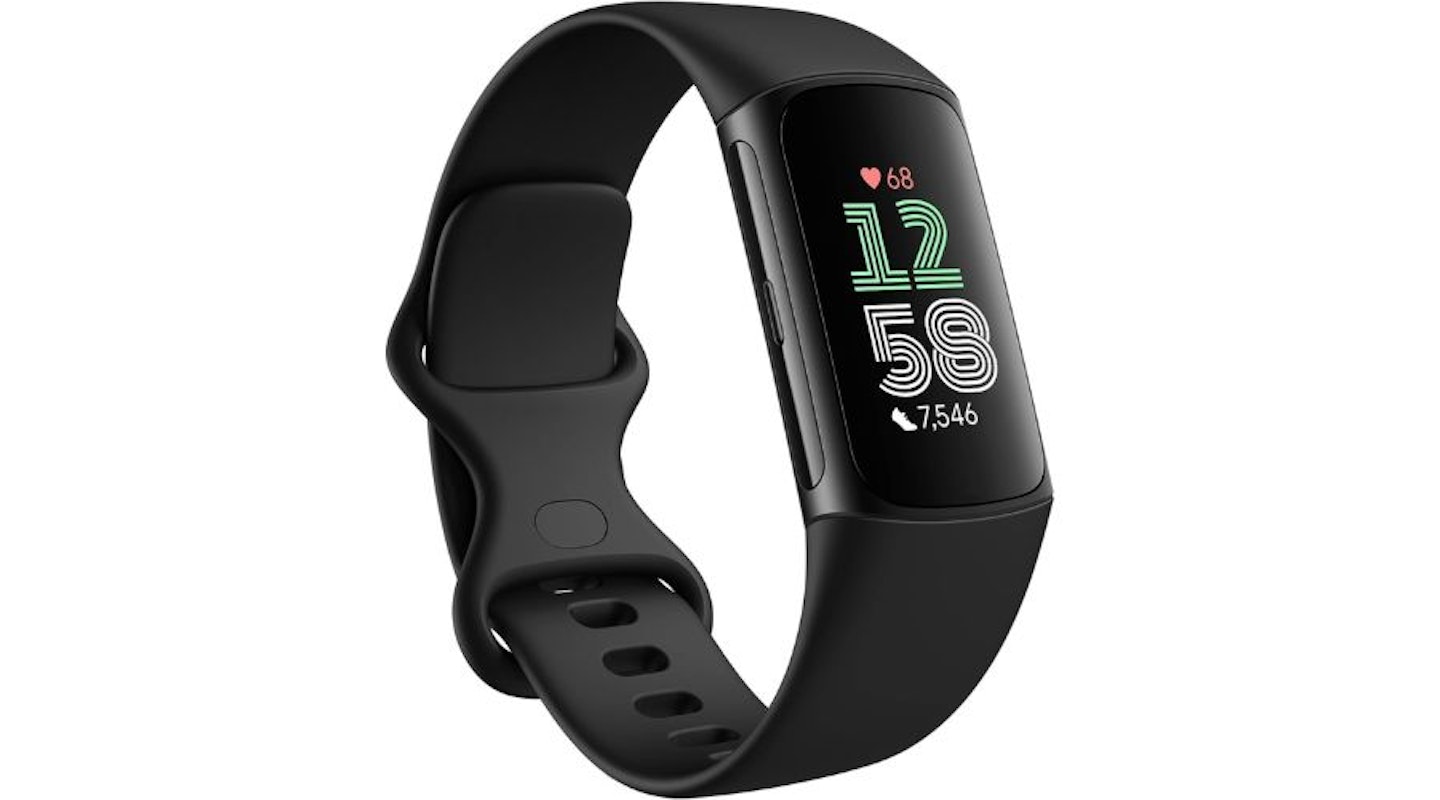 Fitbit
FitbitFitbit’s latest fitness tracker will give you all the essential health and fitness tracking metrics you would expect, for a considerably lower price tag than anything else on this list. With an RRP of £139.99, and sometimes on sale for under £110, you’re getting one of Fitbit’s newest devices.
It shares many of the same features as the Fitbit Sense 2, with a few new additions. An upgraded PPG sensor allows you to accurately track heart rate and blood oxygen levels, and take an ECG. You can also track skin temperature variation, sleep, stress, and over 40 different activity types. You can also access insights such as your Daily Readiness Score and Cardio Fitness Score, to get an idea of your overall fitness levels. Built-in GPS makes tracking outdoor activities such as running and cycling extremely easy, and you can leave your phone at home if you want to.
The Charge 6 can also work with Google Maps and give you directions on your wrist, and it lets you control YouTube Music playback as well – both new additions with this fitness tracker.
Clearly, it won’t give you all the tools and features of a smartwatch. This is more suited to someone who wants to focus on health and fitness, isn’t too worried about apps and other smartwatch features, and doesn’t want to spend a lot.
Pros
- Support for heart rate monitoring on compatible gym equipment
- YouTube music app
- Upgraded heart rate monitoring
Cons
- No Spotify controls
- GPS isn't as accurate as the best devices
| Display: | 1.4-inch AMOLED |
| Battery Life: | Up to seven days |
| GPS: | GPS, GLONASS |
| Water Resistance: | 5 ATM |
| Compatibility: | iOS and Android |
| Dimensions: | 36.73 x 23.09 x 11.20 mm |
| Weight: | 37.64 grams |
Best Samsung smartwatch
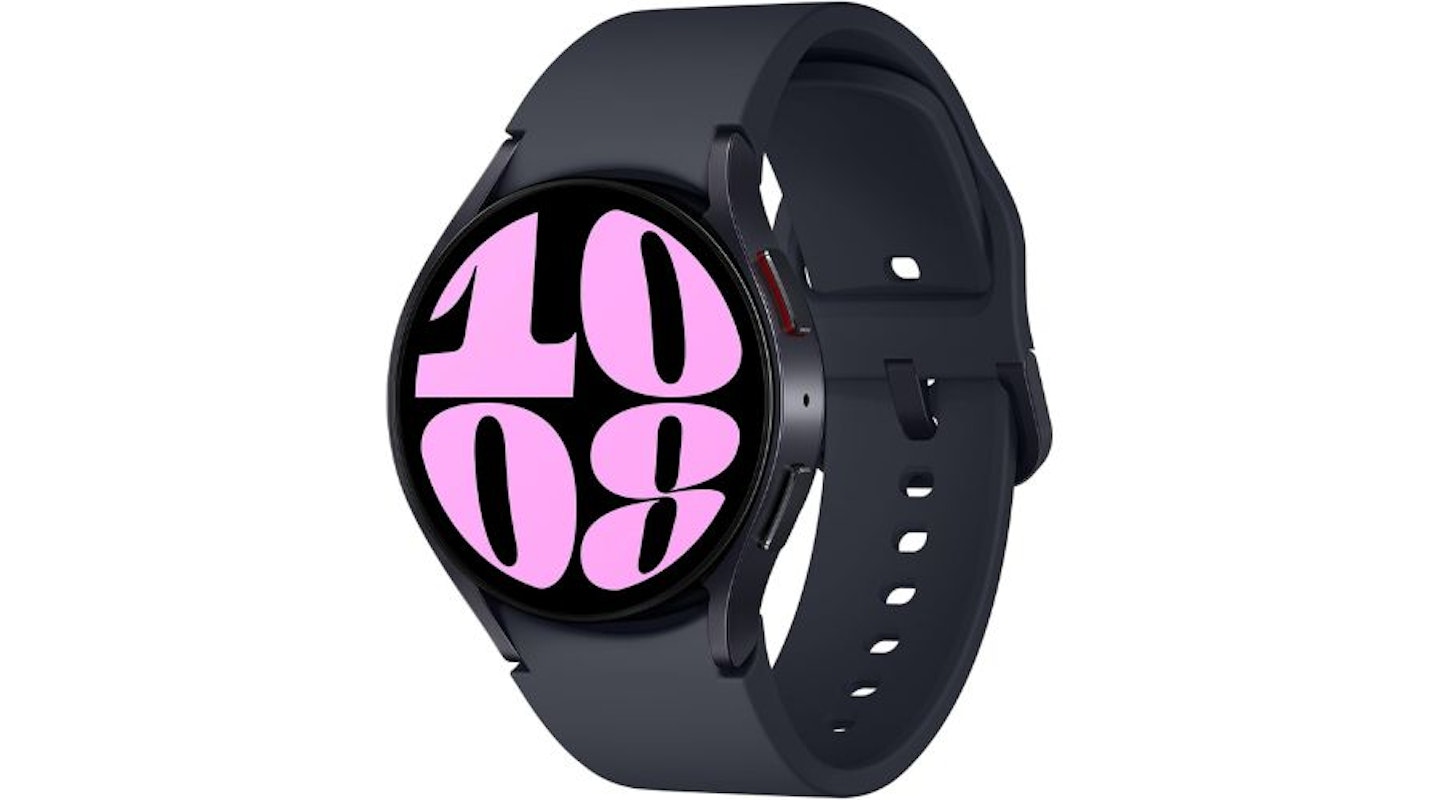 Amazon/Samsung
Amazon/SamsungSamsung has been producing excellent smartwatches for several years now, and its latest version, the Samsung Galaxy Watch 6, is the new best Samsung smartwatch. As well as having a bigger screen than its predecessor, the Watch 6 has a stunning AMOLED display, and a slightly better battery – although at “up to” 40 hours, it’s still not brilliant.
That quibble aside, you’re getting an excellent all-round health tracking device, with features including sleep tracking and coaching, activity tracking and heart rate monitoring (including ECG). There are a couple of other interesting extras, such as body composition estimates using bioelectrical impedance analysis, and even blood pressure monitoring.
For some, being able to keep track of your blood pressure will be enough on its own to justify this watch. But it’s only available if you have a compatible Samsung phone, which is a little disappointing. That said, there are very few rival devices that offer this metric, or body composition analysis. Which makes this one of the best smartwatches for health tracking currently available.
Pros
- Incredibly powerful smartwatch
- Plenty of health-tracking features
- Improved sleep tracking
Cons
- Some features are only available if you also have a Samsung phone
| Display: | 1.3-inch super AMOLED, 432 x 432 pixels |
| Battery Life: | Up to 40 hours |
| GPS: | GPS, GLONASS, BEIDOU, Galileo |
| Water Resistance: | 5ATM |
| Compatibility: | Android only |
| Dimensions: | 38.8 x 40.4 x 9.0 mm (small), 42.8 x 44.4 x 9.0 mm (large) |
| Weight: | 28.7 grams (small), 33.3 grams (large) |
Best value Apple smartwatch
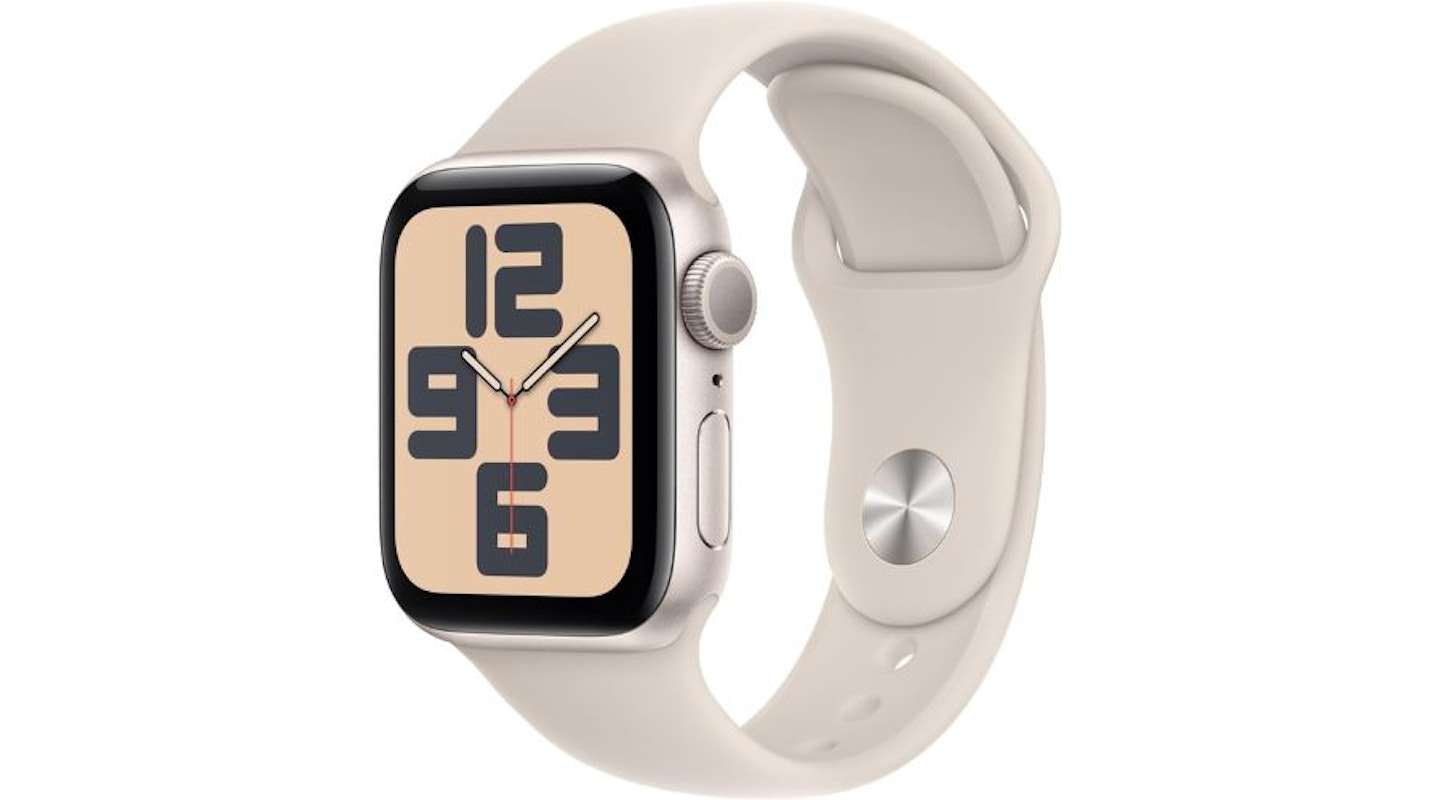 Amazon/Apple
Amazon/AppleIf the Apple Watch Ultra 2 is the best smartwatch for health tracking overall, the Apple Watch SE will still likely be the best Apple Watch for most people. Sure, it has a slightly older and slower processor, the screen isn’t as bright, and you can’t go scuba diving with it. But it still offers a complete smartwatch experience, every bit as slick and polished as the Apple Watch Ultra 2, and at a fraction of the cost, with an RRP starting from £219.
You do lose out on the blood oxygen and ECG monitoring that the Apple Watch Ultra 2 and Apple Watch Series 9 both provide. But you do still get heart rate monitoring, including high and low heart rate notifications, irregular rhythm warnings, and low cardio fitness alerts. There’s also menstrual cycle tracking, as well as the usual sleep and activity metrics you’d expect to find.
Ok, so it doesn’t have as many tools as some of the smartwatches on this list. But it strikes a superb balance between affordability and features, and for many iPhone users, will provide all the health tracking functions they could wish for.
Pros
- Sleek design
- Accurate tracking
- Lots of features at an affordable price
Cons
- Outclassed in terms of battery life
- Fewer health tracking features
| Display: | 1.78-inch OLED Retina display, 448 x 368 pixels |
| Battery Life: | Up to 18 hours |
| GPS: | GPS, GNSS, Galileo and QZSS |
| Water Resistance: | 50 metres under ISO standard 22810:2010 |
| Compatibility: | iOS only |
| Dimensions: | 40 x 34 x 10.7 mm (small), 44 x 38 x 10.7 mm (large) |
| Weight: | 27.8 grams (small), 33 grams (large) |
Best Garmin smartwatch
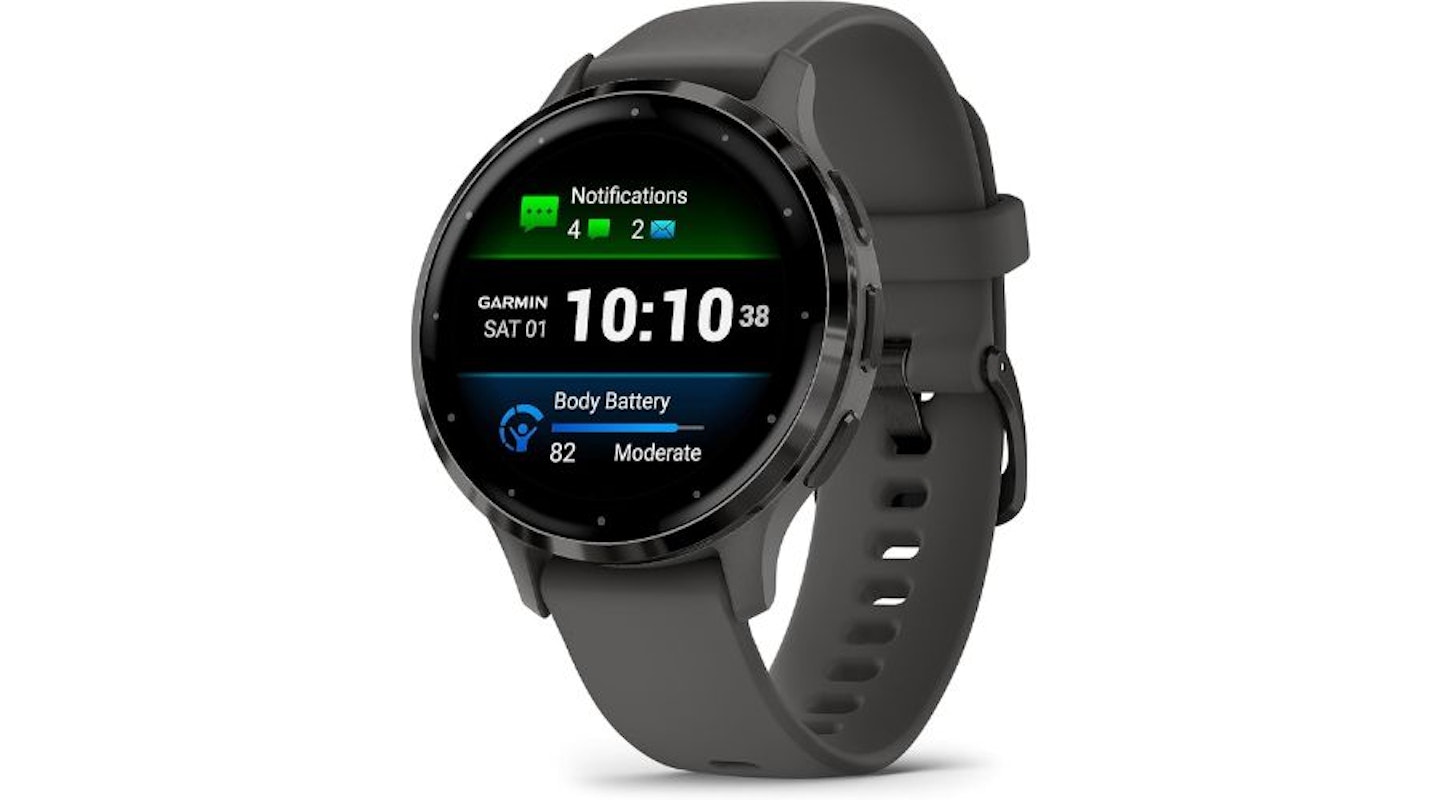 Garmin
GarminWhile many smartwatches focus on apps and connectivity, Garmin devices focus shamelessly on health and fitness. The Garmin Venu 3 isn’t as comprehensive a smartwatch like some of the others on this list. But, if you’re not fussed about those sorts of features, then for our money, the Venu 3 is one of the best health and fitness tracking devices currently available, and one of the best Garmin watches as well.
It has a stunning AMOLED screen which is beautiful to look at. There are more than 30 different sports modes the watch can automatically track, as well as animated workouts that you can follow on screen. These include strength, yoga and high-intensity interval training (HIIT). There are several running-based metrics to help you set a new personal best. There’s even a wheelchair mode to track pushes rather than steps. But while fitness is an obvious strength for this device, the Venu 3 is no slouch on the health tracking front either.
With tools such as sleep, heart rate, heart-rate variability and stress tracking, menstrual cycle tracking, blood oxygen, and skin temperature monitoring, the Venu 3 offers loads of health metrics. A two-minute health snapshot tool can provide a quick summary of a variety of health metrics. Other useful tools include the Morning Report, Body Battery and guidance on recovery time after a workout. There’s even a Jet Lag adviser to help you recover from long-distance travel.
14-day battery life puts the icing on the cake, as it blows most of the competition out of the water. It’s a great watch if you’re prepared to lose some smartwatch functionality.
Pros
- Stunning display
- Good array of health tracking
- Compatible with Apple and Android handsets
Cons
- Doesn't have as many smartwatch features as rival watches
| Display: | 1.4-inch AMOLED, 454 x 454 pixles |
| Battery Life: | Up to 14 days |
| GPS: | Up to 10 days with regular use |
| Water Resistance: | 5 ATM |
| Compatibility: | iOs and Android |
| Dimensions: | 45 x 45 x 12 mm |
| Weight: | 46 grams |
Best Android smartwatch
If you’re an Android phone user, but don’t have a Samsung device, then the Google Pixel Watch 2 is a great option to help you track your health. It’s a beautiful design, with a rounded glass screen that covers a sharp AMOLED display. There’s also an upgraded heart rate sensor, and a sweat detector that helps monitor your stress levels. Sleep tracking, activity tracking, and features such as Pace Training and Heart Zone Training make this a formidable health-tracking smartwatch.
As with many of these devices, the Pixel watch 2 can provide an ECG to help detect atrial fibrillation, as well as warning you if your heart rate seems abnormally high or low. Blood oxygen levels and skin temperature are also tracked, along with detailed sleep tracking. There’s also menstrual health tracking, to help log periods and spot patterns in your cycle.
Battery life has been improved, and the Pixel Watch 2 offers around 24 hours between charges. GPS is accurate and reliable, while it also has Google Assistant to help provide a full smartwatch experience.
Read our full Google Pixel Watch 2 review
Pros
- Plenty of health tracking features
- Improved charging speed
- Beautiful design
Cons
- Still needs to be charged daily
| Display: | 1.2-inch AMOLED, 450 x 450 pixels |
| Battery Life: | Up to 24 hours |
| GPS: | GPS, GLONASS, BeiDou, Galileo, Quasi-Zenith Satellite |
| Water Resistance: | 5 ATM |
| Compatibility: | Android only |
| Dimensions: | 41 x 12.3 mm |
| Weight: | 31 grams |
Best easy-to-use smartwatch
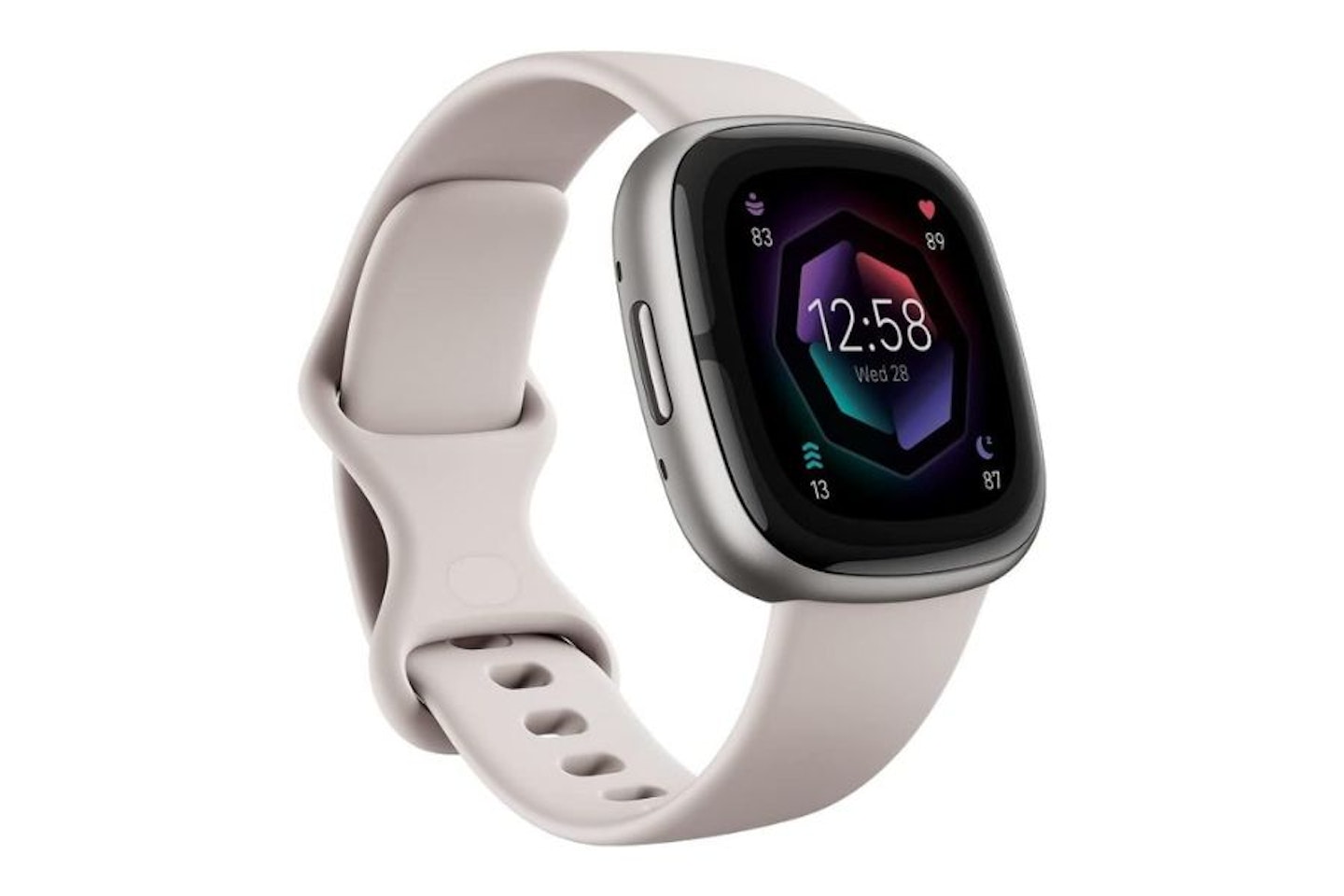 Amazon/Fitbit
Amazon/FitbitFitbit is one of the best-known brands in the world of health and fitness tracking, and the Fitbit Sense 2 is its current flagship device. It’s got a wide range of features to help keep track of your health, while being a relatively easy device to use, with an excellent companion app.
Stress and sleep tracking, as well as blood oxygen, heart rate, ECG, skin temperature, breathing, and menstrual health tracking are all available, while built-in GPS helps ensure accurate tracking of any runs, walks or bike rides you may go on. There are other activity tracking modes available, as well as generally keeping track of your steps, distance covered, and estimating your calorie burn.
The Fitbit app will help you make sense of all the data the Sense 2 is recording, while Fitbit Premium will give you access to additional sleep insights, your Daily Readiness Score (to help you decide how active to be each day) and workout and nutrition advice. You have to pay for Fitbit Premium, but you get six months to try it before it starts costing you anything.
It’s not as advanced in its smartwatch capabilities as some devices – but that’s just fine if you want something that’s simple to use.
Pros
- Lots of health tracking metrics
- Stress tracking is a great feature
- Simple to use
Cons
- Paying for Fitbit Premium to access some of your data isn't great
- Not a "true" smartwatch - so limited features
| Display: | 1.58-Inch AMOLED, 336 x 336 pixels |
| Battery: | Up to 6 days |
| GPS: | GPS, GLONASS |
| Water Resistance: | 5ATM |
| Compatibility: | iOS and Android |
| Dimensions: | 40.5 x 40.5 x 12.3 mm |
| Weight: | 37.6 grams |
If you’re looking for a more traditional watch design, but still want plenty of health tracking features, then the Withings ScanWatch 2 is our pick. Withings pioneered the concept of a hybrid smartwatch, and this latest model packs more features in than ever before.
An upgraded PPG sensor makes tracking heart rate, blood oxygen levels and respiratory rate more accurate than before. It’s also unique in that, while most smartwatches will monitor your temperature at night, the ScanWatch 2 can do this 24/7. Withings says that this allows for more easily identifying temperature variations, to help indicate the onset of illness – sometimes before symptoms appear.
The watch also offers “medical-grade” ECG readings and atrial fibrillation detection, heart-rate variability, and all the usual activity, sleep and calorie tracking you’d hope to find in a decent smartwatch.
Steven Shaw tested the device for What's The Best. In his ScanWatch 2 review, he wrote:
"There's a lot that I really like about the ScanWatch 2. It's a simple, clean design that looks like a classic timepiece. If looks matter in your choice of watch, this one will appeal."
"The new headline feature is the TempTech24/7 module, which tracks changes in your body temperature all day, every day. Withings claims this as a world first, as most smartwatches and trackers that offer temperature tracking, only do so at night."
"Primarily, I'd say this is a health tracker, more than it is a smartwatch or fitness tracker. And with that in mind, I'd say it's most suited to anyone who is mainly interested in monitoring their health and wellbeing."
Read the full Withings ScanWatch 2 review
Pros
- Beautiful classic watch design
- All day temperature tracking is unique
- Excellent battery life
Cons
- No built-in GPS
- Small screen isn't great for reading notifications
| Display: | 0.63-inch grayscale OLED display, 282 PPI |
| Battery Life: | Up to 30 days |
| GPS: | Connected GPS only |
| Water Resistance: | 5 ATM |
| Compatibility: | iOS and Android |
| Dimensions: | 38mm or 42mm |
| Weight: | 34.6 grams (38mm version), 52.6 grams (42mm version) |
Best premium health tracking smartwatch
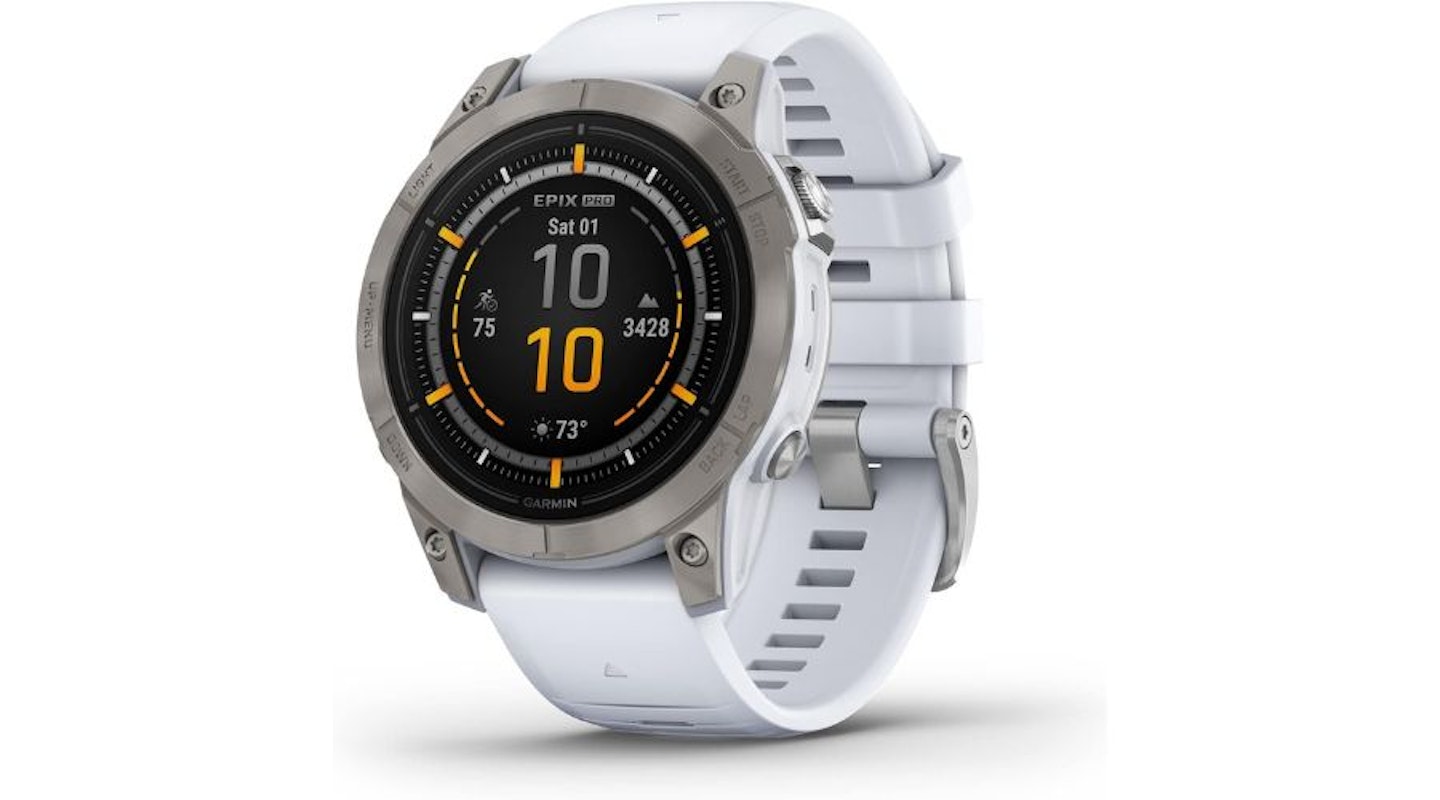 Garmin
GarminIf you’re happy to spend a bit more to get one of the best all-round health and fitness smartwatches on the market, then the Garmin Epix Pro Gen 2 Sapphire Edition may be what you’re looking for. Its RRP from £829.99 puts it in the same bracket as the Apple Watch Ultra 2. But crucially, this watch works on both iPhone and Android devices.
It’s a great watch for anyone who loves the outdoors, offering a superb AMOLED display that’s easy to see in bright sunlight, up to 31 days of battery life (depending which size you choose), multi-band GPS and an LED torch for low light conditions. And it offers just about every conceivable health and fitness metric Garmin can come up with.
The basics are all covered – heart rate, blood oxygen, sleep, and activity tracking are all there. And the Epix Pro also offers nap detection, Jet Lag Adviser, stress tracking, Body Battery, Morning Report, heart-rate variability, and the Health Snapshot feature.
On top of that are all the advanced training metrics on offer. Hill Score, Endurance Score, PacePro, ClimbPro, training status and training readiness, real-time stamina, recovery time, and daily suggested workouts, are available.
In smartwatch terms, you can download music and keep track of the stock market while you’re out and about. It’s incredibly comprehensive, and if you buy this, we can’t imagine what metrics you’d need to upgrade it for many years to come.
Pros
- Superb battery life
- Comprehensive health and tracking features
- Excellent GPS tracking
- Map support
Cons
- Limited smartwatch functionality
- No solar charging
| Display: | 1.3-inch AMOLED, 416 x 416 pixels |
| Battery Life: | Up to 31 days |
| GPS: | GPA, GLONASS, GALILEO |
| Water Resistance: | 10 ATM |
| Compatibility: | iOS and Android |
| Dimensions: | 47 x 47 x 14.5 mm |
| Weight: | 70 grams |
10.
ASUS VivoWatch 6
Best smartwatch for blood pressure monitoring
uk.store.asus.com
There aren't many fitness trackers or smartwatches that offer blood pressure monitoring – with the Samsung Galaxy watch range arguably the best known. But the major drawback with those watches is that in order to actually use the blood pressure monitoring feature, you also need to own a Samsung smartphone. For anyone who wants to monitor their blood pressure, but doesn't own a Samsung phone, the ASUS VivoWatch 6 could be the solution.
Offering plenty of health and fitness tracking features, the blood pressure monitoring feature uses a dual sensor – one on the back of the watch, and one on the side – to deliver greater accuracy than a single sensor would. It also offers ECG and body composition metrics, in addition to the usual steps, calories, sleep, and heart rate metrics you would expect to find.
Senior Tech Writer and Reviewer Steven Shaw was given the ASUS VivoWatch 6 to review. He had the following thoughts: "The big pitch on the VivoWatch 6 is its ability to measure ECG, body composition and blood pressure through your fingertip. To be clear, ECG is a common measurement on smartwatches (albeit usually done via your wrist). Body composition and blood pressure are much rarer."
"Blood pressure readings are based on something called Pulse Transit Time. You'll also need a standard blood pressure cuff to calibrate your readings. I did wonder why, if you already have a blood pressure cuff, would you then want to rely on a watch for readings? I think the main thing is you will get regular readings from the watch without any hassle. I found the readings to be generally in line with the cuff I used for calibration."
"If you're a non-Samsung phone owner who wants to monitor their blood pressure on your wrist, the ASUS VivoWatch 6 is arguably the best – or possibly only – option out there."
Read the full ASUS VivoWatch 6 review
Pros
- Blood pressure monitoring works with iOS and Android devices
- The watch is easy to navigate and control
- The ASUS HealthConnect app presents data clearly
Cons
- Some tracking features aren't especially accurate
- The feature set is slightly limited compared with other watches at this price
| Display | 1.39-inch AMOLED |
| Battery Life | Up to 9 days |
| GPS | Dual-Band GPS |
| Water Resistance | 5 ATM |
| Compatibility | Android and iOS |
| Dimensions | 46 x 14 x 270 mm |
| Weight | 60 grams |
Buying guide: best smartwatches for tracking your health
Budget
We’ve chosen a variety of devices that sit at vastly different prices. Some, such as the Apple Watch Ultra 2 and the Garmin Epix Pro Gen 2 are premium devices, and as such, carry a premium price tag. Others sit at a more mid-range level, while some are suitable if you are looking to get something relatively inexpensive.
It’s important to work out what you are willing to pay, and then look for something suitable. There are plenty of great devices at almost every price point, and spending less doesn’t mean you will miss essential features. At the same time, spending a bit more does generally translate into getting a few extras – such as improved battery life, or more metrics, for example.
Features
Features are linked to your budget – generally you’ll get more features if you have a larger budget. But we’d recommend working out which features are essential, and which ones you can do without - then look for a device within your price range to match.
For example, if blood pressure monitoring is essential, a Samsung Galaxy watch 6 may be the perfect device for you. But if you don’t care about that, you can look at plenty of alternatives. The same goes for what we’d call smartwatch features – such as apps, sending texts and making calls. If these are essential to you, then you’ll need to look for a dedicated smartwatch.
Of course, be realistic as well. Don’t expect to have every advanced metric under the sun unless you are willing to spend to get it.
Battery life
We consider battery life as a key feature in the fitness trackers and smartwatches that we test. True smartwatches typically have a short battery life of a day or two, while hybrid smartwatches and Garmin devices tend to last much longer. If you don’t mind charging your watch daily, then the likes of an Apple Watch or Google Pixel Watch will work for you. If you prefer something that lasts longer, you may need to rule out some of these devices.
Operating system
Finally, it’s essential to check whether the smartwatch you are interested in is compatible with your phone. All these devices rely on a companion app for you to get the most from them. But Apple Watches are only compatible with iPhones, so if you have an Android device, you’ll need to look elsewhere.
Similarly, the Pixel Watch 2 and Samsung Galaxy Watch 6 are only compatible with Android devices. With the Samsung Galaxy watch, some features will only work with Samsung handsets. So, check what phone you have before making your purchase.
Devices from Fitbit and Garmin, however, are compatible with both iPhone and Android handsets, so these offer you a lot more choice.
FAQs
How accurate are smartwatch health trackers?
According to the Heart Rhythm Society, the modern smartwatch is an accurate and reliable source of heart rate tracking - possibly the most important part of health tracking on a smartwatch - so you can rest assured your heart health can be tracked with a great deal of precision.
Can smartwatches detect heart problems?
Modern smartwatches from Apple, Samsung, Fitbit and Garmin have heart irregularity detection - that is, they're able to detect if your heart is not beating at a normal pace. However, this is not a suitable substitution for expert medical advice, if you have any concerns you should absolutely consult your GP or physician.
Apple versus Samsung: Which has the best smartwatch?
There's no definitive answer to this question - both have their strengths and weaknesses - Samsung watches have better battery life, whilst Apple's apps are considered easier to use and organised in a more visually appealing style - it's anybody's game.
Are smartwatches harmful to health?
While a great smartwatch can be a fantastic exercise motivator and a powerful tool for fitness monitoring - it should be said that such an attachment to smart devices can lead to body-image issues, unhealthy obsessions with health and can reinforce obsessive thoughts. If you already suffer from such issues, it might be best if you steer clear of smartwatches altogether.
Summary: the best smartwatches for tracking your health
Smartwatches are continually getting better at tracking your health and fitness, offering more insights and more accurate data than ever. They still aren’t perfect, and while we think they’re great for giving you a general idea of your health, we would still recommend that you take any readings as a guideline, rather than absolutely correct. As always, if you’re concerned about any of your readings, or you don’t feel right, make sure you see your doctor, rather than relying on the smartwatch.
That said, the devices we’ve chosen are among the best in the business, and can be a great way of helping you stay motivated, encouraging you to take responsibility for your health and wellbeing, and empowering you to make lifestyle choices to help keep you healthier for as long as possible.
How we chose
When choosing our shortlist, we considered a number of factors. We looked for devices from well-known brands that have a track record in delivering high-quality smartwatches and fitness trackers. We wanted models that offered comprehensive health-tracking metrics, in addition to other fitness and smartwatch features.
We also looked at qualities such as design, performance, and value for money. Are these devices you’d be happy to wear? Are they good quality? How accurate are they, and what is battery life like? Finally, did we feel that what is being offered represents value for money?
Why should you trust us?
At What's The Best, our mission is to provide accurate and reliable reviews, ensuring our readers receive honest and transparent information about the best technology products available. Anything less would undermine our commitment to being a trusted source of unbiased product information.
Our dedicated in-house writing team comprises experts with extensive experience and a genuine passion for technology. Collectively, we have spent decades testing and writing about tech, leveraging our expertise in all our articles, advice pieces and reviews.
We maintain complete editorial independence and do not accept payment for product reviews. Our writers have full control over their content, ensuring that products are selected based solely on the needs of our readers. While we may earn commissions or other compensation from links on our website, this never affects our product choices. These links enable us to continue offering valuable consumer advice, without compromising the integrity of our reviews.
Steven Shaw is a Senior Tech Writer and Reviewer for What's the Best. Steven writes how-to guides, explainers, reviews and best-of listicles covering a wide range of topics. He has several years of experience writing about fitness tech, mobile phones, and gaming.
When Steven isn’t writing, he’s probably testing a new smartwatch or fitness tracker, putting it through its paces with a variety of strength training, HIIT, or yoga. He also loves putting on a podcast and going for a long walk.
Subscribe to the What's The Best Newsletterto keep up to date with more of the latest reviews and recommendations from the What’s The Best team.
